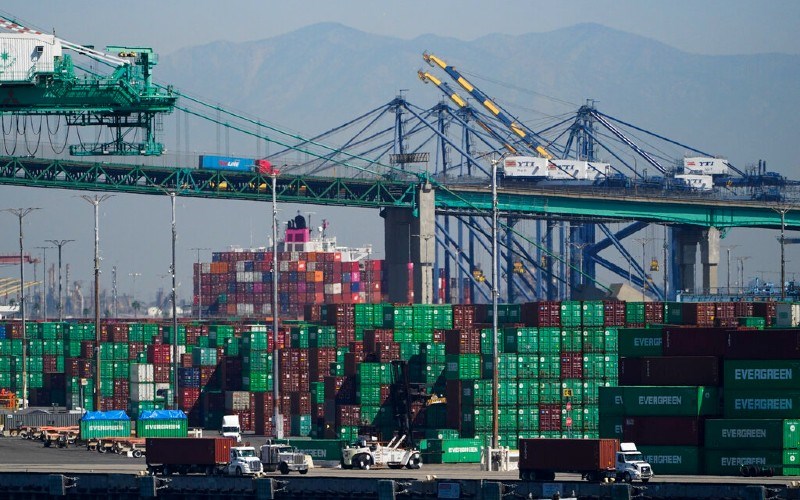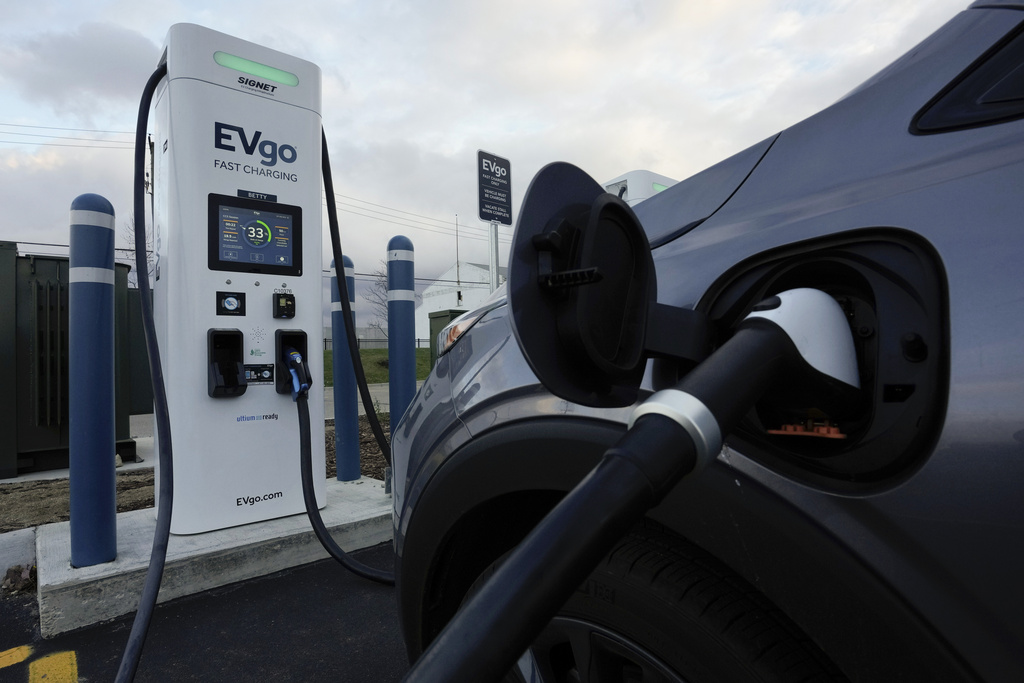Things did get better. Imports started moving again, and consumers had the luxury of forgetting about the supply chain for a while. But now, as the issue's return to America's consciousness is inevitable, Chicago-based supply chain consultant Jim Nelles recently wrote about the looming crisis for The Daily Wire.
"We're seeing an unprecedented situation happening now," Nelles told American Family Radio on Monday. "One is man-made, and one is Mother Nature kicking in."
The pot, he said, is being stirred several ways.
On the West Coast, dockworkers have been on the job without a contract for almost a year. In recent days, ports in Los Angeles and Long Beach – which rank numbers one and three among American ports in terms of business volume – have shut down in Southern California. The port at Seattle has done likewise.

Some companies have made alternate plans to send ships through the Panama Canal to access ports in the Gulf of Mexico or on the U.S. East Coast, but the canal is at record-low water levels right now because of drought and El Nino. Maximum shipping depth has been reduced from 50 feet to 40 feet, meaning 40% less cargo makes it through on a single pass than did four months ago.
"There are delays getting through because instead of using one ship, you're having to use two ships," Nelles told show host Jenna Ellis. "We're starting to see surcharges go up by $300 to $500 per container, which is helping to drive inflation."
Transportation Secretary Pete Buttigieg has had little to say on resurgent supply chain issues.
In a discussion on the economy with George Stephanopoulos last October, Buttigieg said he was focused on transportation infrastructure improvements.
"That's a big part of what we're working on on the infrastructure side – dealing with some of the bottlenecks we have, dealing with some of the constraints that we have in transportation infrastructure that's needed to be upgraded for decades," Buttigieg told the ABC News host.
But having seen no evidence of progress, Nelles believes Buttigieg needs to be more involved.
The West Coast is a good place to start
The consultant suggests that Buttigieg can start by helping with the West Coast ports' ongoing labor dispute.
"That has to be resolved," Nelles stated. "July, August, and September are really when the majority of goods that are sold for the holiday season come into the ports, so we need to have those ports operating at full capacity when that happens."
To accomplish that, the dispute must be resolved.
Still, labor is a short-term fix, Nelles noted. In the long term, Buttigieg needs to follow through with some of the infrastructure improvements he touted eight months ago. But largely because those improvements are missing, American parts lag way behind their international counterparts.
"What he needs to do is work with both the unions and the people that own and operate the ports to automate our ports. Our ports are the most inefficient in the world," Nelles said.
Citing a study from last year that looked at the 250 largest ports in the world, he reported that Long Beach and Los Angeles ranked 249 and 250 – behind ports in China, Saudi Arabia, and even the Republic of Congo.
"There is a huge opportunity to automate ports and to make them a lot more efficient," Nelles reiterated.
But unions are holding back that progress at the West Coast ports.
"The unions don't want that," he explained, "but they're going to have to allow that to happen if they want to have those ports continue to operate. The East Coast has already done it."
In his view, the Port of Savannah, which has integrated with the railroads as well, is "the best model in the United States for how a port should be run."
Nelles says Buttigieg has to be more assertive if he is to bring America's largest ports up to speed.
"The East Coast is doing it; the West Coast has to catch up," he said. "A really powerful secretary of transportation who is interested in actually being the secretary of transportation should be involved in getting this done."
State and local laws are making it hard on California ports
Nelles added that the California ports are also being hindered by state laws. For example, California trucks with engines older than 2010 have been banned – a move that has taken roughly 75,000 trucks off the road.
"There are fewer and fewer trucks that are able to operate in California because of these regulations," he lamented. "If you have a big rig with an engine – even if it's been overhauled in 2009 – you can't drive it, which means you can't pick up goods at the port of Los Angeles. It's really leading to increased cost and increased congestion at the port."
In 2020 trucks and ships were the target of new laws that were described as California's most ambitious strike against smog in a decade.
Local measures are also an issue.
Los Angeles County has enacted a law that regulates how much noise can come from a port, and another that limits the possibilities for expansion due to environmental impacts on people of color.
"Really, stop the stupid is what I would say is the best way to fix this," Nelles offered. "If we could just stop hitting ourselves in the head with the hammer, the pain would go away, and we'd be a lot better off."







